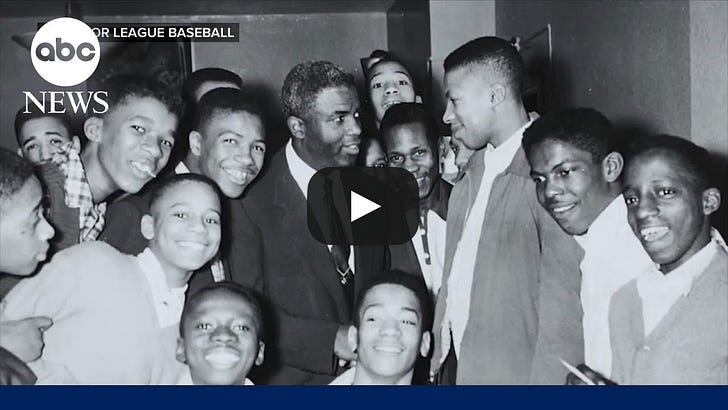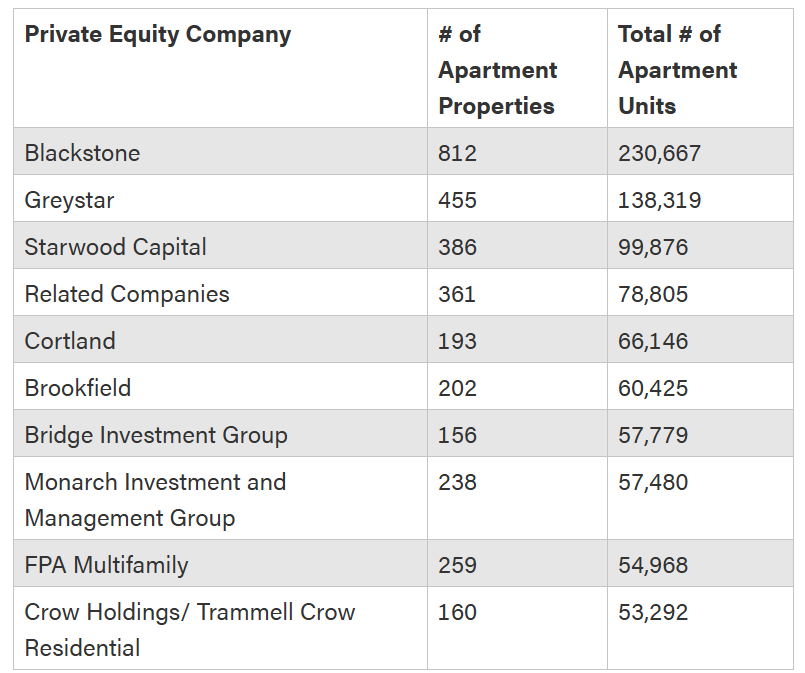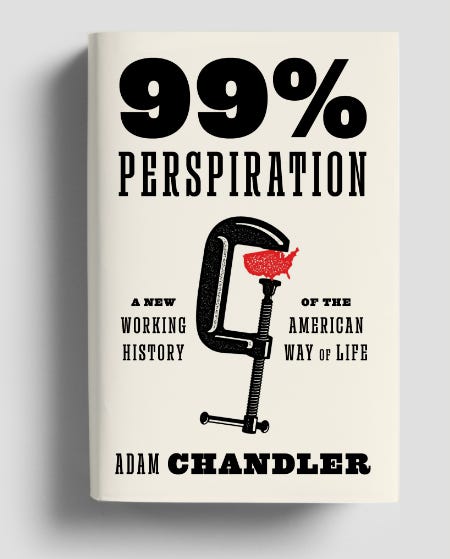Welcome to You’re Probably Getting Screwed, a weekly newsletter and video series from J.D. Scholten and Justin Stofferahn about the Second Gilded Age and the ways economic concentration is putting politics and profits over working people. Welcome to You’re Probably Getting Screwed, a weekly newsletter and video series from J.D. Scholten and Justin Stofferahn about the Second Gilded Age and the ways economic concentration is putting politics and profits over working people. Have you seen the new Monopoly Busters Caucus? If you enjoy this newsletter, you will likely appreciate what these House Democrats had to say last week.  You can find a press release announcing the new caucus here and can watch their full press conference - including remarks from a grocery worker, local pharmacy and the National Farmers Union - at this link. As Democrats consider the future of the party, part of the debate is between antimonopolists that see corporate power as the key challenge we face, and neoliberals (recently embodied by the authors of Abundance) that see regulatory barriers as the core issue confronting Americans. I would recommend reading recent pieces by Fordham Law Professor Zephyr Teachout and Hannah Garden-Monheit of the American Economic Liberties Project that review the Abundance framework with an antimonopoly lens. YOU’RE PROBABLY (ALSO) GETTING SCREWED BY:Colorado The state of Colorado has a unique provision in law that makes it incredibly difficult to unionize by requiring two elections. Unions are required to have the standard initial election where a majority of workers have to decide in favor of unionizing, but then Colorado law requires a second election that has to be approved by 75% of workers. While the legislature has moved to remove this provision, Governor Jared Polis is threatening to veto the measure.  Tariffs It was an absolutely insane week on Wall Street as President Trump’s tariffs rocked the markets. Over at the American Prospect David Dayen and Harold Meyerson published a pair of pieces detailing how the Administration’s chaotic use of tariffs benefits corporate monopolies and moneyed interests while everyday people get squeezed. Meyerson points out that despite the harm the tariff chaos could inflict on everyday people, it was rich folks that had to convince the president.
Tariffs & Price Discrimination Albertsons, one of the country’s largest grocery chains, sent suppliers a letter saying that prices for goods cannot include tariffs. This means suppliers will raise prices on competitors, particularly smaller ones. Just another reason that building America’s industrial capacity will require a strong antitrust approach alongside strategic trade policy. Medicaid Cuts By a two-vote margin (216-214) the US House of Representatives passed a Senate Budget resolution last week that would make massive cuts to Medicaid, which could impact millions of children, seniors and people with disabilities, and low-income families. Private Equity A new report by the Private Equity Stakeholder Project estimates that at a minimum, private equity firms now own 10% of all apartments in the United States. More than half (55%) of those PE-owned apartments are in just five states – Texas, Florida, California, Georgia, and North Carolina. The problem is also accelerating as 62% of those apartments have been acquired since 2018. DOGE Last week we highlighted that DOGE had arrived at the FTC. Alvaro Bedoya and Rebecca Kelly Slaughter, the two Democrat commissioners President Trump is attempting to illegally fire, issued a statement detailing the threats DOGE could pose. The statement points out that the confidentiality of FTC data is not only safeguarded by law, but undermining trust in that confidentiality would significantly undermine the commission’s ability to gather the information it needs to enforce antimonopoly and consumer protection laws. Sanitized History Yesterday was Jackie Robinson Day in Major League Baseball, marking the day in 1947 that he broke baseball’s color barrier by debuting for the Brooklyn Dodgers. However, the sanitized version of Jackie this day often promotes seems particularly hollow this year, not the least of which is because the Trump Administration’s attempt to remove a webpage on Jackie from the Department of Defense website several weeks ago. The end of segregation in baseball is also a story of monopoly power. Big league owners raided Negro League teams of their best players, refused to integrate the leagues into the major leagues and eventually killed the Negro Leagues and the black-owned economic ecosystem it had created. If it wasn’t for the Negro Leagues, we would have never gotten Jackie as he started his career playing for the Kansas City Monarchs in the Negro National League. For thoughts on the shortcomings of Jackie Robinson Day check out these pieces by Justin Tinsley and Jake Mintz.  SOME GOOD NEWS:Zuckerberg Takes the Stand Despite some personal lobbying of Trump by Meta CEO and broligarch Mark Zuckerberg, the FTC’s antitrust case against the social media monopolist has gone to trial this week. For the best insight on the case check out Matt Stoller’s special substack, Big Tech on Trial. State AGs Take on PBMs A bipartisan coalition of 39 state attorneys general - through the National Association of Attorneys General (NAAG) - have sent a letter to Congressional leaders urging them to pass legislation that would prohibit pharmacy benefit managers (PBM) from owning or operating pharmacies. Doing so would eliminate one of the key ways PBMs have been able to transform into gatekeepers in the pharmaceutical supply chain, squeezing local pharmacies and raising costs on patients. Antitrust in the States Last week we shared some new resources by Fight Corporate Monopolies and the Institute for Local Self Reliance on how states can fight back against monopoly power, but you should also check out a recent op-ed in The Sling by Daniel Hanley of the Open Markets Institute on antimonopoly tools states can utilize. This comes at the same time California has started to move legislation that would crack down on algorithmic price fixing. BOOK CLUB:This month’s book is “99% Perspiration” by reporter Adam Chandler. Adam’s new book is a look at the myths we tell ourselves about hard work, with some fascinating profiles of how consolidation impacts working people. You can purchase 99% Perspiration here but Adam said he also would encourage you to request it from your local library. And be sure to send in your questions for Adam by commenting below. BEFORE YOU GO:Before you go, I need two things from you: 1) if you like something, please share it on social media or the next time you have coffee with a friend. 2) Ideas, if you have any ideas for future newsletter content please comment below. Thank you! Break Em Up, Justin Stofferahn |



